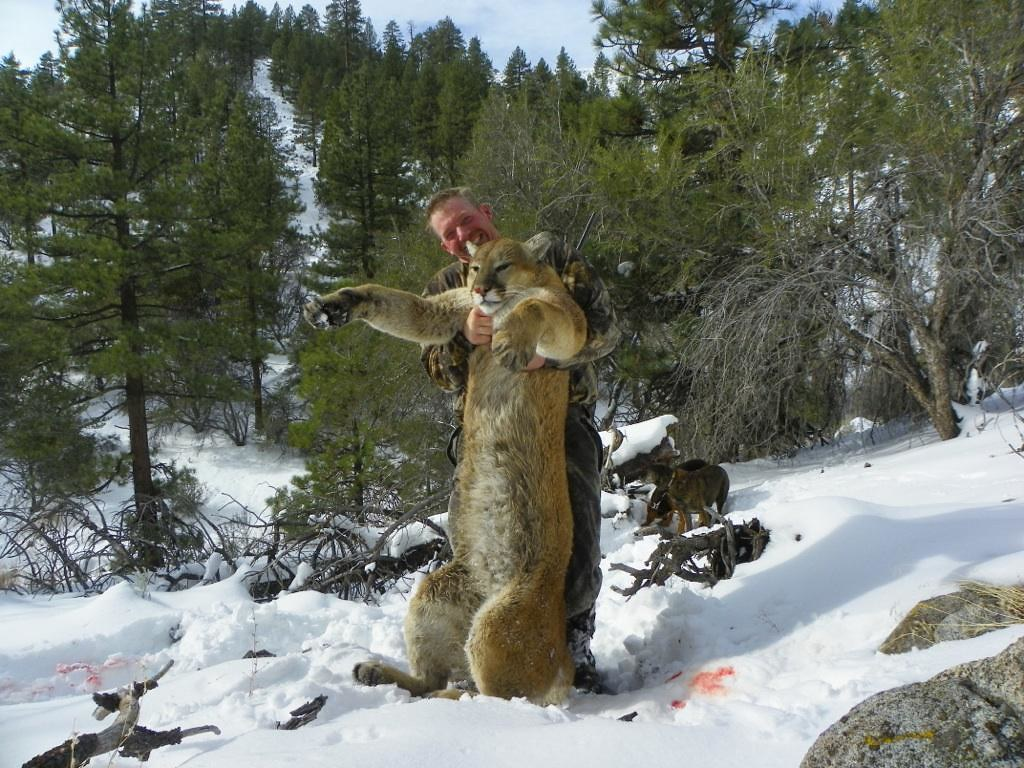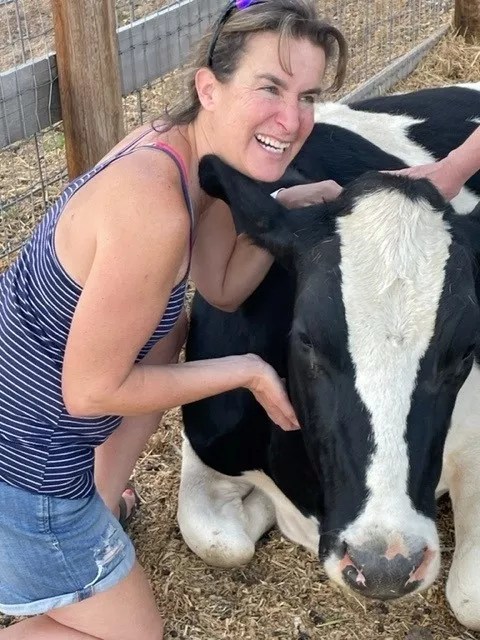
dh Reno

Audio By Carbonatix
Gathering signatures for a statewide ballot measure is like braving the weather in Colorado: Any sun-kissed, blissful hour can turn unpredictably cold, but thankfully doesn’t last.
Approaching strangers bearing a clipboard is not something every citizen enjoys or wants to do, and for good reason.
It helps to say, “Don’t worry, I’m not asking for money.”
I’m one of 600 Colorado volunteers asking registered voters to sign the Cats Aren’t Trophies (CATs) petition, to stop the trophy hunting of mountain lions and commercial fur-trapping of bobcats in our wild places. We are in the final days to reach 125,000 verified signatures and secure our spot on the November ballot.
Denver, make your New Year’s Resolution Count!
We’re $13,000 away from reaching our $50,000 year-end fundraising goal. Your support could be what pushes us over the top. If our work has kept you informed and connected this year, please consider making a contribution today.
As a first-time canvasser, this experience has opened my eyes to what it means to exercise our state-sanctioned, democratic freedom to petition for an issue that affects every citizen. Wildlife is not the private property of predator hunters and fur trappers who want to kill for personal fun and cash in pocket.
It’s also been difficult to experience political apathy from those who would wave off a nice (I think) canvasser without even hearing the topic.
This past weekend, I spent twenty hours and turned into a sunburned lobster at the Boulder Creek Fest as I watched moms and dads, grandparents and twenty-somethings from El Paso, Mesa, Routt, Arapahoe, Clear Creek and Larimer counties, among others, lend their names in black ink to the turning pages of my petition booklets.
Reactions spanned from the man who said, “I live in Steamboat, and we want to kill every mountain lion,” to the Colorado Springs gentleman who was seriously disappointed the CATs measure punished lion trophy hunters with a misdemeanor and not a felony.
The majority of people were either wildly supportive or landed somewhere in the middle. The most common phrase by far was: “What? Do we actually allow people to do this?”
Direct Democracy: Politics Without Polarization
Not every state allows citizen-initiated measures. The CATs measure addresses state statutes, which are subject to amendment by citizen-initiated measures. The process is governed by state law.
It’s a multi-step process with daunting legal hurdles, and once the language has cleared the courts, it’s time to get the signatures necessary to land on the ballot.
Statewide ballot measures in Colorado date back to 1880 and cover dozens of categories, including agriculture and alcohol to civil rights, criminal justice, energy, taxation and transportation. Add in education, natural resources, wildlife, gaming and government finance to boot.
You don’t have to be a certified public accountant to pass laws affecting the economy, nor does it take a biology degree to decide whether it is socially unacceptable to allow recreational shooting of mountain lions chased and cornered by packs of dogs. Same for deciding whether to allow trapping, skinning and selling unlimited numbers of Colorado bobcats to China and Russia to make them into luxury items.
CATs is about Colorado values, and I’ve been deeply moved by the ability to connect and engage with so many of my fellow citizens on a human level, in person, with eye contact and two-way conversations. It’s a world apart from the viper pit of social media.
Sometimes it’s inspiring. The eighty-year-old man who placed his cane on his hip to free his hands to sign made my day. So did the younger man who grilled me for thirteen minutes with excellent questions. And signed.
My favorite, though, was a dad holding hands with his seven-year-old daughter.
He then turned to his little girl and said, “Okay, we want to sign this one, but what do we say if we don’t want to sign something?”
She looked up, and with the biggest smile said, “Actually, we are from Orlando.”
Something We Can All Agree Upon
It’s incredibly powerful to know that citizens may put an issue before the voters for laws to change. And no single issue captures us more than how we relate to animals. No wonder people with dogs at the festival were 100 times more likely than not to sign.
The CATs measure is most similar to the initiative Colorado voters passed thirty years ago to ban the spring bear hunt that also once used dog packs to chase bears and kill moms in spring, when cubs were being orphaned.
CATs also bans hounding and protects kittens, as mother lions breed year-round.
The difference today is that our main opposition – the Colorado Trappers and Predator Hunters Association – is well-organized and well-funded to fight any and all wildlife ballot measures.
But lion hunters and bobcat fur trappers don’t realize that this is not 1850; their desire to kill wild and native big cats as their sport has fallen out of favor among the citizens, including those of us who do support deer and elk hunting for food, and who support ranching.
What greatly encouraged me at the festival were the smart, thoughtful elk and deer hunters and ranchers whom I met, including the track coach who is an elk hunter and strongly against killing lions for sport. I hugged a goat rancher from Weld County who lost her favorite goat to a mountain lion and yet signed the petition.
“We need to learn to live with lions,” she said, explaining that Colorado Parks and Wildlife gave her free light-and-noise deterrents to dissuade lions from her property in the future.
Embracing the Will of Voters
Colorado Parks and Wildlife states it is neutral on the CATs measure and will enforce the will of the voters.
As a free democratic society, we can all embrace the will of the voters when it comes to the ethical treatment of native wildlife in nature.
My experience has been that canvassing for a citizen-led ballot measure can be difficult but remains an invaluable exercise to engage Colorado voters where they are: at public festivals, in coffeehouses or at parks. My joy has been connecting to people with disabilities, like my adult daughter, and people from diverse backgrounds in ethnicity and race, who have historically been silenced or ignored in these important areas of public government policymaking.
Predator hunters and fur trappers will fight to keep the citizens of Colorado ignorant and silenced, so they can keep killing our wild cats for selfish recreational pleasure, collecting hides and heads. But as long as we keep breathing life into this ballot measure with good people willing to do the hard work, and citizens willing to pause and pick up a pen, that won’t ever happen.
Learn more and sign up to be a circulator today at catsarenttrophies.org.

The author with a four-legged friend.
Courtesy Julie Marshall
Julie Marshall is a native Coloradan who works as public relations director for Animal Wellness Action and the Center for a Humane Economy. She has been writing about the issue of mountain lion sport hunting for thirty years, including as an Opinion Editor for the Boulder Daily Camera. She also worked as a public information officer for the Colorado Division of Wildlife.
On weekends, Westword often publishes opinion pieces and essays on matters of interest to the community. Have one you’d like to submit? Send it to editorial@westword.com, where you can also comment on this piece.